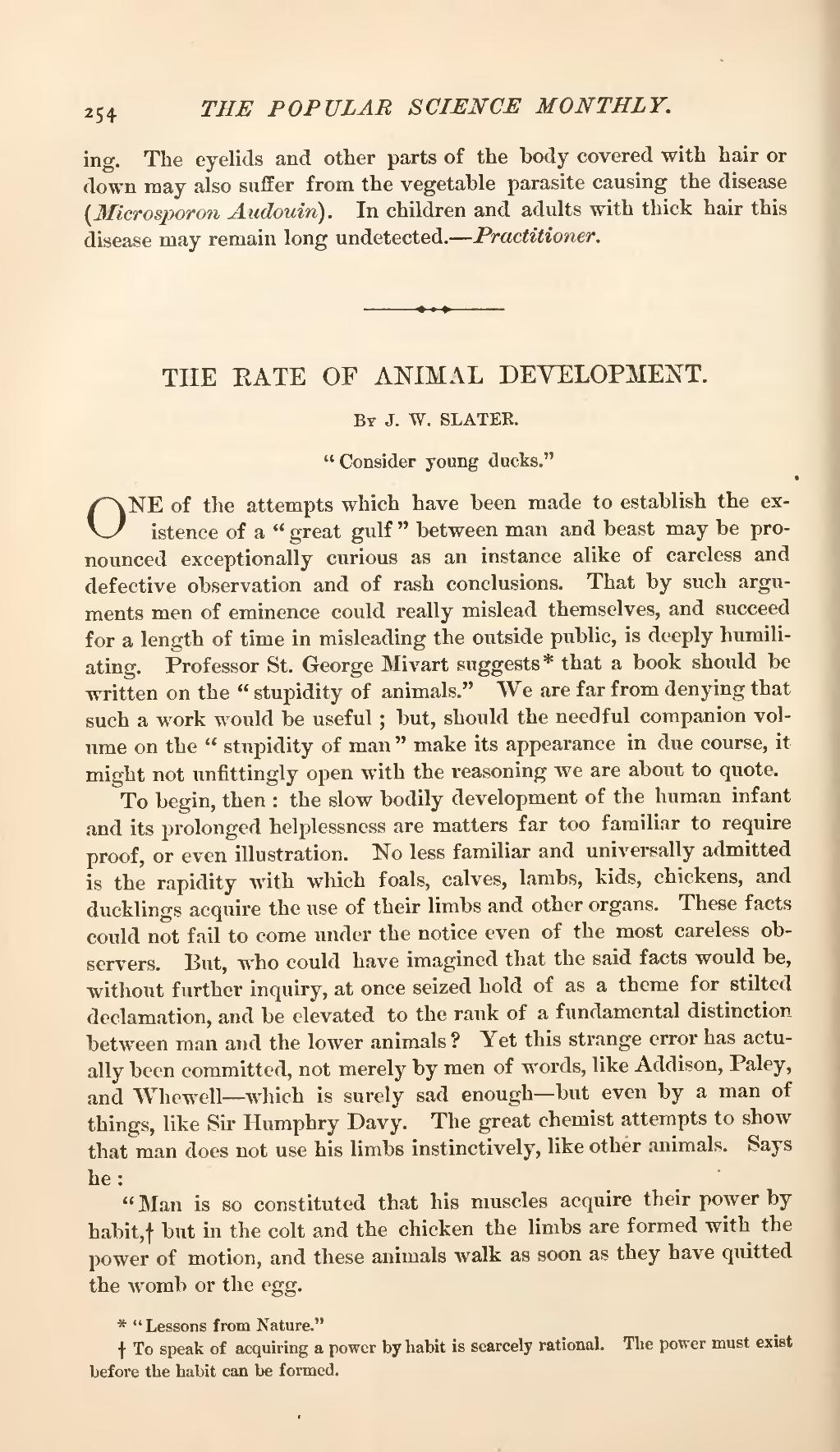ing. The eyelids and other parts of the body covered with hair or down may also suffer from the vegetable parasite causing the disease (Microsporon Audouin). In children and adults with thick hair this disease may remain long undetected.—Practitioner.
| THE RATE OF ANIMAL DEVELOPMENT. |
By J. W. SLATER.
"Consider young ducks."
ONE of the attempts which have been made to establish the existence of a "great gulf" between man and beast may be pronounced exceptionally curious as an instance alike of careless and defective observation and of rash conclusions. That by such arguments men of eminence could really mislead themselves, and succeed for a length of time in misleading the outside public, is deeply humiliating. Professor St. George Mivart suggests[1] that a book should be written on the "stupidity of animals." We are far from denying that such a work would be useful; but, should the needful companion volume on the "stupidity of man" make its appearance in due course, it might not unfittingly open with the reasoning we are about to quote.
To begin, then: the slow bodily development of the human infant and its prolonged helplessness are matters far too familiar to require proof, or even illustration. No less familiar and universally admitted is the rapidity with which foals, calves, lambs, kids, chickens, and ducklings acquire the use of their limbs and other organs. These facts could not fail to come under the notice even of the most careless observers. But, who could have imagined that the said facts would be, without further inquiry, at once seized hold of as a theme for stilted declamation, and be elevated to the rank of a fundamental distinction between man and the lower animals? Yet this strange error has actually been committed, not merely by men of words, like Addison, Paley, and Whewell—which is surely sad enough—but even by a man of things, like Sir Humphry Davy. The great chemist attempts to show that man does not use his limbs instinctively, like other animals. Says he:
"Man is so constituted that his muscles acquire their power by habit,[2] but in the colt and the chicken the limbs are formed with the power of motion, and these animals walk as soon as they have quitted the womb or the egg.
